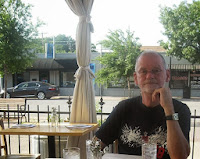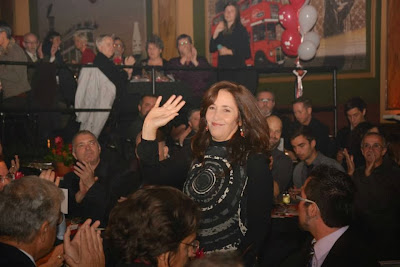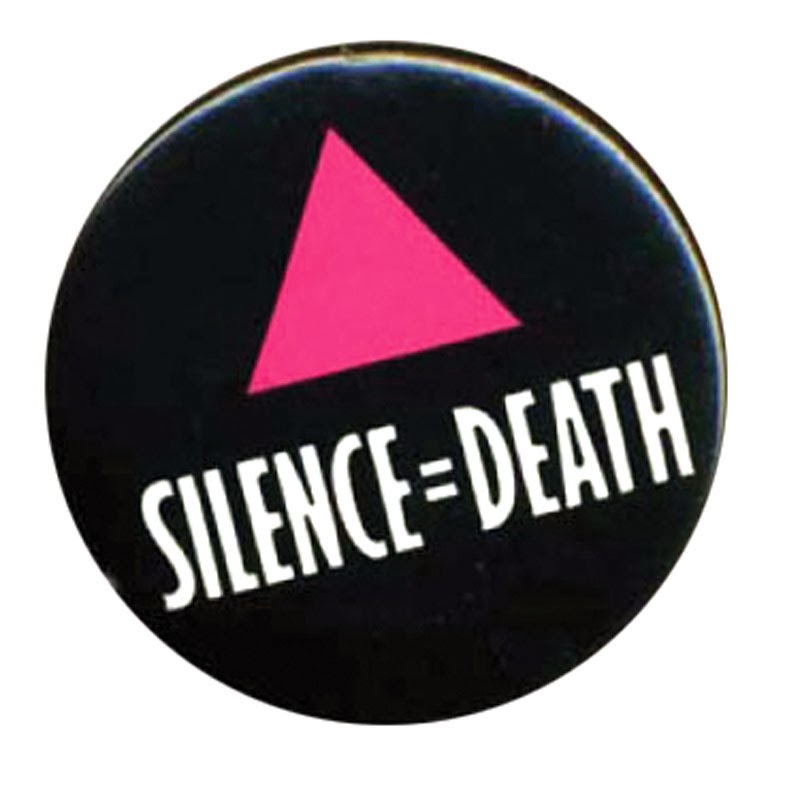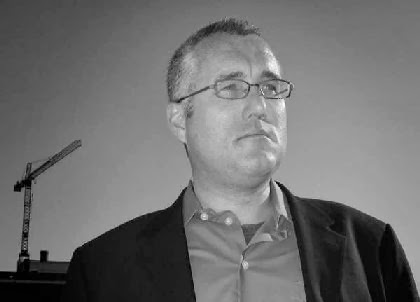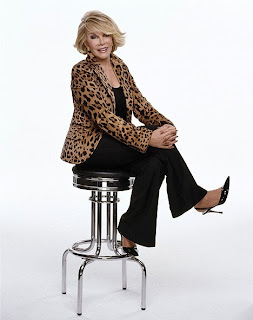 |
Robert Pattinson, shown here in the 2008 Spanish film Little Ashes (Photo still courtesy Kaleidoscope Entertainment) |
Before matinee idol Robert Pattinson won international fame as a vampire in Hollywood's Twilight franchise, he portrayed artist Salvador Dalí having a love affair with poet Federico García Lorca in the 2008 Spanish film Little Ashes.
Now, in a new interview in the September issue of Germany Interview magazine, Pattison admits he masturbated on the set during a sex scene.
“My orgasm face is recorded for eternity,” Pattison said, pointing out that faking it “just doesn’t work, so I pleasured myself in front of the camera.”
In other words, Pattison whacked off on film. This is what they call “method acting.”
Before Robert Pattinson won international fame as a sparkly vampire, he starred in a little known Spanish film called Little Ashes.
Released in 2008, the British actor played artist Salvador Dalí exploring his friendship and love affair with poet Federico García Lorca.
According to an interview with a German magazine, Pattinson said he chose to approach the role using, well, method acting.
He said he pleasured himself to completion in a scene, as faking it ‘just doesn’t work’.
‘My orgasm face is recorded for eternity,’ he joked.
Pattinson also says the production was the ‘worst’ as working around other naked male actors was ‘mortifying’.
While critics hated the movie, describing it as ‘dry’ and ‘dull’, they certainly gave him a hand for his performance.
- See more at: http://www.gaystarnews.com/article/robert-pattinson-reveals-he-%E2%80%98pleasured%E2%80%99-himself-real-gay-film040913#sthash.HgLZCoRV.dpuf
Released in 2008, the British actor played artist Salvador Dalí exploring his friendship and love affair with poet Federico García Lorca.
According to an interview with a German magazine, Pattinson said he chose to approach the role using, well, method acting.
He said he pleasured himself to completion in a scene, as faking it ‘just doesn’t work’.
‘My orgasm face is recorded for eternity,’ he joked.
Pattinson also says the production was the ‘worst’ as working around other naked male actors was ‘mortifying’.
While critics hated the movie, describing it as ‘dry’ and ‘dull’, they certainly gave him a hand for his performance.
- See more at: http://www.gaystarnews.com/article/robert-pattinson-reveals-he-%E2%80%98pleasured%E2%80%99-himself-real-gay-film040913#sthash.HgLZCoRV.dpuf
Before Robert Pattinson won international fame as a sparkly vampire, he starred in a little known Spanish film called Little Ashes.
Released in 2008, the British actor played artist Salvador Dalí exploring his friendship and love affair with poet Federico García Lorca.
According to an interview with a German magazine, Pattinson said he chose to approach the role using, well, method acting.
He said he pleasured himself to completion in a scene, as faking it ‘just doesn’t work’.
‘My orgasm face is recorded for eternity,’ he joked.
Pattinson also says the production was the ‘worst’ as working around other naked male actors was ‘mortifying’.
While critics hated the movie, describing it as ‘dry’ and ‘dull’, they certainly gave him a hand for his performance.
Last year, Pattinson made headlines for when he revealed he was caught in a 'gay dogging' raid at his favorite biking spot.
Check out a montage of scenes from Little Ashes below
- See more at: http://www.gaystarnews.com/article/robert-pattinson-reveals-he-%E2%80%98pleasured%E2%80%99-himself-real-gay-film040913#sthash.HgLZCoRV.dpuf
Released in 2008, the British actor played artist Salvador Dalí exploring his friendship and love affair with poet Federico García Lorca.
According to an interview with a German magazine, Pattinson said he chose to approach the role using, well, method acting.
He said he pleasured himself to completion in a scene, as faking it ‘just doesn’t work’.
‘My orgasm face is recorded for eternity,’ he joked.
Pattinson also says the production was the ‘worst’ as working around other naked male actors was ‘mortifying’.
While critics hated the movie, describing it as ‘dry’ and ‘dull’, they certainly gave him a hand for his performance.
Last year, Pattinson made headlines for when he revealed he was caught in a 'gay dogging' raid at his favorite biking spot.
Check out a montage of scenes from Little Ashes below
- See more at: http://www.gaystarnews.com/article/robert-pattinson-reveals-he-%E2%80%98pleasured%E2%80%99-himself-real-gay-film040913#sthash.HgLZCoRV.dpuf
Before Robert Pattinson won international fame as a sparkly vampire, he starred in a little known Spanish film called Little Ashes.
Released in 2008, the British actor played artist Salvador Dalí exploring his friendship and love affair with poet Federico García Lorca.
According to an interview with a German magazine, Pattinson said he chose to approach the role using, well, method acting.
He said he pleasured himself to completion in a scene, as faking it ‘just doesn’t work’.
‘My orgasm face is recorded for eternity,’ he joked.
Pattinson also says the production was the ‘worst’ as working around other naked male actors was ‘mortifying’.
While critics hated the movie, describing it as ‘dry’ and ‘dull’, they certainly gave him a hand for his performance.
Last year, Pattinson made headlines for when he revealed he was caught in a 'gay dogging' raid at his favorite biking spot.
Check out a montage of scenes from Little Ashes below
- See more at: http://www.gaystarnews.com/article/robert-pattinson-reveals-he-%E2%80%98pleasured%E2%80%99-himself-real-gay-film040913#sthash.HgLZCoRV.dpuf
Released in 2008, the British actor played artist Salvador Dalí exploring his friendship and love affair with poet Federico García Lorca.
According to an interview with a German magazine, Pattinson said he chose to approach the role using, well, method acting.
He said he pleasured himself to completion in a scene, as faking it ‘just doesn’t work’.
‘My orgasm face is recorded for eternity,’ he joked.
Pattinson also says the production was the ‘worst’ as working around other naked male actors was ‘mortifying’.
While critics hated the movie, describing it as ‘dry’ and ‘dull’, they certainly gave him a hand for his performance.
Last year, Pattinson made headlines for when he revealed he was caught in a 'gay dogging' raid at his favorite biking spot.
Check out a montage of scenes from Little Ashes below
- See more at: http://www.gaystarnews.com/article/robert-pattinson-reveals-he-%E2%80%98pleasured%E2%80%99-himself-real-gay-film040913#sthash.HgLZCoRV.dpuf
Before Robert Pattinson won international fame as a sparkly vampire, he starred in a little known Spanish film called Little Ashes.
Released in 2008, the British actor played artist Salvador Dalí exploring his friendship and love affair with poet Federico García Lorca.
According to an interview with a German magazine, Pattinson said he chose to approach the role using, well, method acting.
He said he pleasured himself to completion in a scene, as faking it ‘just doesn’t work’.
‘My orgasm face is recorded for eternity,’ he joked.
Pattinson also says the production was the ‘worst’ as working around other naked male actors was ‘mortifying’.
While critics hated the movie, describing it as ‘dry’ and ‘dull’, they certainly gave him a hand for his performance.
Last year, Pattinson made headlines for when he revealed he was caught in a 'gay dogging' raid at his favorite biking spot.
Check out a montage of scenes from Little Ashes below
- See more at: http://www.gaystarnews.com/article/robert-pattinson-reveals-he-%E2%80%98pleasured%E2%80%99-himself-real-gay-film040913#sthash.HgLZCoRV.dpuf
Released in 2008, the British actor played artist Salvador Dalí exploring his friendship and love affair with poet Federico García Lorca.
According to an interview with a German magazine, Pattinson said he chose to approach the role using, well, method acting.
He said he pleasured himself to completion in a scene, as faking it ‘just doesn’t work’.
‘My orgasm face is recorded for eternity,’ he joked.
Pattinson also says the production was the ‘worst’ as working around other naked male actors was ‘mortifying’.
While critics hated the movie, describing it as ‘dry’ and ‘dull’, they certainly gave him a hand for his performance.
Last year, Pattinson made headlines for when he revealed he was caught in a 'gay dogging' raid at his favorite biking spot.
Check out a montage of scenes from Little Ashes below
- See more at: http://www.gaystarnews.com/article/robert-pattinson-reveals-he-%E2%80%98pleasured%E2%80%99-himself-real-gay-film040913#sthash.HgLZCoRV.dpuf












